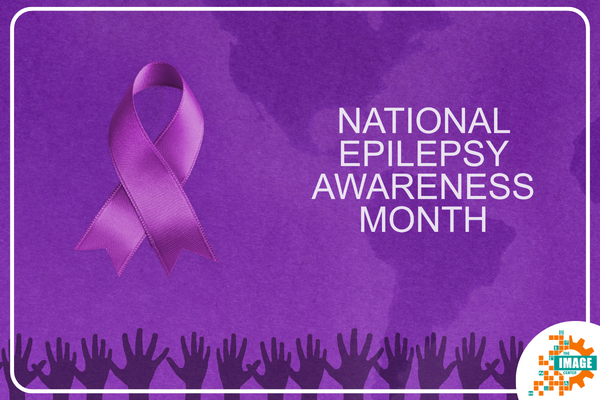A Personal Perspective
My name is Chris Nusbaum, and I’m a Social Support Specialist for the IMAGE Center’s Covid Public Health program. I have been living with epilepsy since 2015, and it has impacted my life in many ways. One of our unique characteristics at the IMAGE Center is that the majority of our staff are people with disabilities, so we can tap into the lived experiences of our staff. Much of this post will come from my own experiences and what I have learned throughout my journey with epilepsy.
Top 5 Myths about Epilepsy… Debunked
Epilepsy can sometimes be confusing, so there are a lot of myths around it. Here are our top 5:
1. The only real seizures are convulsive.
Not true. There are many different kinds of epilepsy which manifest themselves in different kinds of seizures. These include myoclonic or “petit mal” seizures, which are usually small twitches; absent seizures, where the person “spaces out” or momentarily loses awareness; and tonic-clonic or “gran mal” seizures, the large, convulsive seizures that we often first picture when we think of epilepsy. In fact, the exact nature of a person’s seizures and epilepsy diagnosis are so unique that epilepsy is best looked at as a case-by-case condition, because it is so hard to discern patterns.
2. Once you have epilepsy, you cannot have a normal life.
Not at all! Epilepsy certainly requires adjustment and management, but the majority of people who live with epilepsy do just that: live with it. There are many support groups on social media related to epilepsy, and one member expressed: “We’re bigger and better than it is. It’s just a bully.”
3. If you’re with a person who is having a seizure, you should put something in their mouth to keep them from swallowing their tongue.
Not a good idea! For one thing, the tongue is a muscle, so we can’t swallow our tongues. But more importantly, putting something in the mouth of a person while that person is having a seizure can actually be harmful to both you and the person you are helping.
4. Epilepsy is contagious.
It is a neurological condition; it’s not an infectious disease. It results from abnormal elitrical activity in the brain.
5. Epilepsy is a medical condition, but not a disability.
Epilepsy is covered under the Americans with Disabilities Act and other disability-related laws, so people with epilepsy are entitled to receive accommodations related to their condition. This is important because of the intillectual impact that epilepsy, seizures and some medications can have.
How You Can Help
As everyone who has epilepsy or another seizure disorder can attest, a seizure can happen anywhere at any time. If someone is having a seizure and you are nearby, your first response can make a big difference. Here are some helpful tips.
Three Words to Remember: “Time, Safe, Stay”
Time: When the seizure starts, start the stopwatch on your phone. If it lasts more than 5 minutes, medical help is needed.
Safe: Keep the person safe. Since seizures are so unpredictable, it’s important to be sure the area around the person is clear of obstacles or objects that might cause injury.
Stay: Most importantly, stay with the person throughout the seizure and until the person is fully recovered or medical help arrives.
More Resources
The Epilepsy Foundation (epilepsy.com) is a great one-stop resource for all things epilepsy, including information on management, a help line, and local and national support groups, both for people with epilepsy and for their loved ones. Their chapter in Maryland offers a variety of virtual and in-person support groups that are great for anyone living with epilepsy. There are also a lot of groups on Facebook related to epilepsy, including specific groups for young adults, parents, and users of the vagal nerve stimulator (VNS). Chris would also love to talk with anyone who wants to know more about epilepsy. Email him at cnusbaum@imagemd.org.

